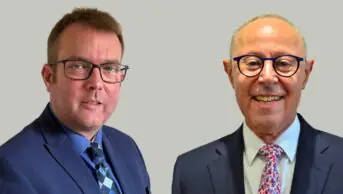Healthcare professionals are frequently consulted by athletes on drug use, from both clinical and anti-doping perspectives.
The World Anti-Doping Agency Code, which is currently under review, recognises the importance of healthcare professionals in helping athletes to make informed choices relating to drug use. Pharmacists, with their drug expertise, can clearly fulfil this role.
The International Olympic Committee (IOC) has introduced a new Certificate in Drugs in Sport to support healthcare professionals to lead on effective clinical drug use and doping prevention in athletes.
The course provides healthcare professionals with the main precepts relating to drug use and misuse in sport; the international rules and regulations relating to anti-doping; the role of healthcare providers in the ongoing care of athletes and in the prevention of doping in sport; and the contribution they can make at major sporting events.
The part-time six-month programme is delivered and examined entirely online. The course is available to those with a relevant undergraduate degree related to healthcare or professional work in the anti-doping environment. The course comprises 25 online lectures presented by high-profile experts in sports medicine from around the world.
The emerging discipline of sports pharmacy and the IOC certificate provide career and professional development opportunities for pharmacists:
- In general clinical practice: pharmacists can advise athletes on the safe, effective and permissible use of drugs in sport. They can advise other individuals who participate in sport and exercise on the safe use of medicines and supplements;
- With sports organisations: the pharmacist can collaborate with local and national sports clubs and associations to provide expert advice on anti-doping policies and procedures; become an educational advisor for national anti-doping organisations; work with athletes through their national or international sports federation on anti-doping policies and procedures; or become an accredited doping control officer through the National Anti-Doping Agency;
- At major sporting events: pharmacists can provide expert advice at events such as the Olympic and Paralympic Games.
Some athletes see the deliberate use of prohibited substances or methods as a shortcut to improved performance, but there have been many cases in which inadvertent use of a prohibited substance has resulted in severe sanctions. Many of these cases could have been avoided if accurate, evidence-based advice had been provided by appropriately-educated healthcare professionals. Sports pharmacists require the high-quality education and training provided by this IOC course to fulfil this role effectively.
Further information on the IOC Certificate course can be found at: http://www.sportsoracle.com
David Mottram, emeritus professor of pharmacy practice, School of Pharmacy and Biomolecular Sciences, Liverpool John Moores University
Mark Stuart, pharmacist, International Olympic Committee Medical and Scientific Commission
You may also be interested in

‘Are people believing this information?’: research raises concerns over online drug marketing

Dale and Appelbe’s Pharmacy and Medicines Law: covering ‘essential ground in the most highly regulated areas of healthcare’
